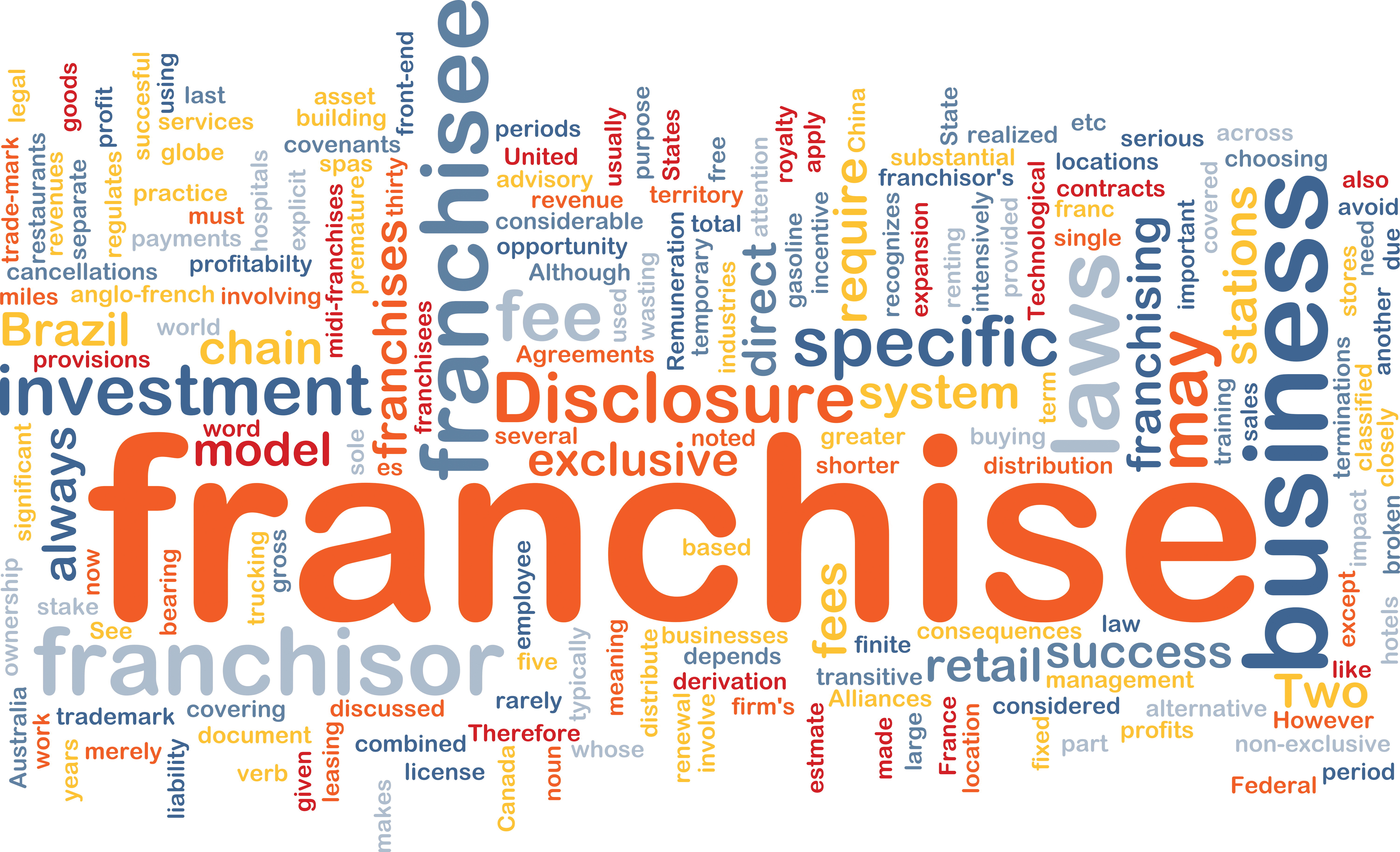Franchise: A person who, under the name and system of the franchisor, buys the right for operating a business.
Franchisor: This is the name given to the parent company that permits a person to start a business by using the trademarks, processes and products of the parent company. This is usually permitted under a contract or chargeable fee.
Franchise Fee: In order to become a franchisee, this is the initial fee paid by an individual to the franchisor which is stated in the FDD (Franchise Disclosure Document) Item 5. In case of some franchises, this fee is flat and the same for all; whereas in other cases it may vary based on size of territory, experience of the franchisee among others points. Veterans, minorities and existing franchisees are offered fee discounts by many franchisors.
Franchise Disclosure Agreement: It is required by the U.S Federal Trade Commission that all franchisors to provide their prospective franchisees with this document. Updated every year, FDDs consist of 23 sections known as items. These provide the history of the company, costs and fees, obligation under the contract, unit data and other details which should be reviewed thoroughly before you make your move.
Initial Investment/Startup Cost: Outlined in the FDD Item 7, it is the total capital required in order to start the franchise. It is inclusive of the franchise fee, real estate expenditure, supplies, equipments, working capital and business licenses.
Royalty Fee: It is required by many franchisors that they are paid a fee on regular basis which is weekly, monthly or yearly by the franchisee. It usually is a fee based on sales percentage, but may also be a flat fee in some cases. In order to cover advertisement costs, some franchisors may also require additional royalty fee from the franchisee.
Franchise Agreement: It is a written contract which is included in the FDD and states the additional responsibilities of the franchisee as well as the franchisor.
Term of Agreement: This basically states the duration until which your agreement with the franchisor is valid, which is usually between 5 years to 20 years. When the agreement term ends, the franchisor may agree to renew the contract based on a percentage of the franchise fee which is currently being charged.
Company-owned Units: Instead of the franchisees, these franchise locations are owned and operated by the franchisor (parent company).
Registration States: It is required in 15 States for franchisors to register their FDD with the State agencies before they can legally sell the franchises within that particular State.
Conversion: Entrepreneurs are offered opportunities by some franchisors to convert their current independent business into a franchise.
In-house Financing: Franchises are sometimes offered financing by the franchisors to cover up the startup costs, equipment expenses as well as daily payroll finances.
Third-party Financing: Many franchisors are affiliated to banks or register with SBA to quicken the loan processing which they use to provide their franchisees with the financing.
Absentee Ownership: Some franchisors offer this option to allow a person to own a franchise, yet not obligated to be involved actively in its daily operations.
Master Franchise: It acts as a sub franchisor for a particular territory. These franchises can provide FDDs, add new franchises, give support for logistics and hence, get a percentage of the royalties of that particular territory.
Area Developer: An area developer is under an agreement with the franchisor to start a particular number of franchises in the given large territory. The operations and starting of the franchises may be done by the area developer or they may select other franchisees in order to operate them.











